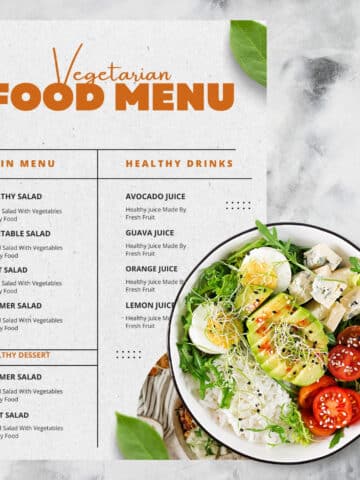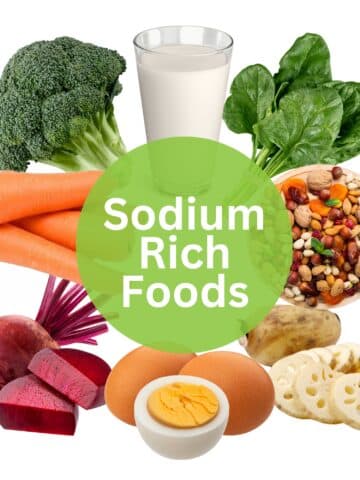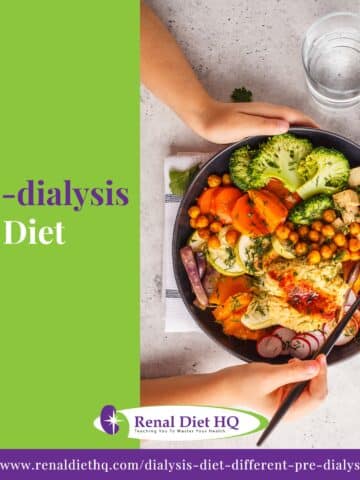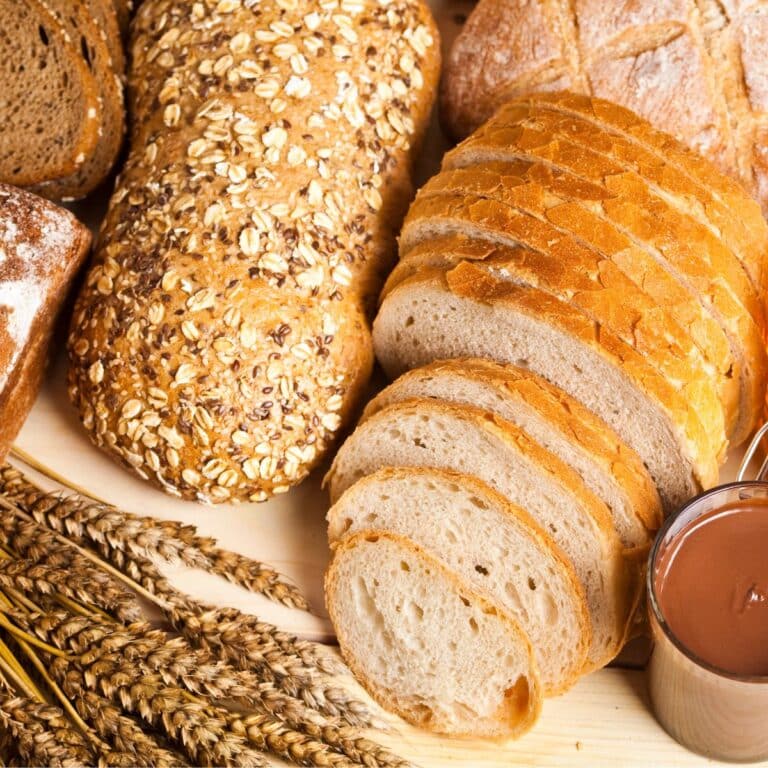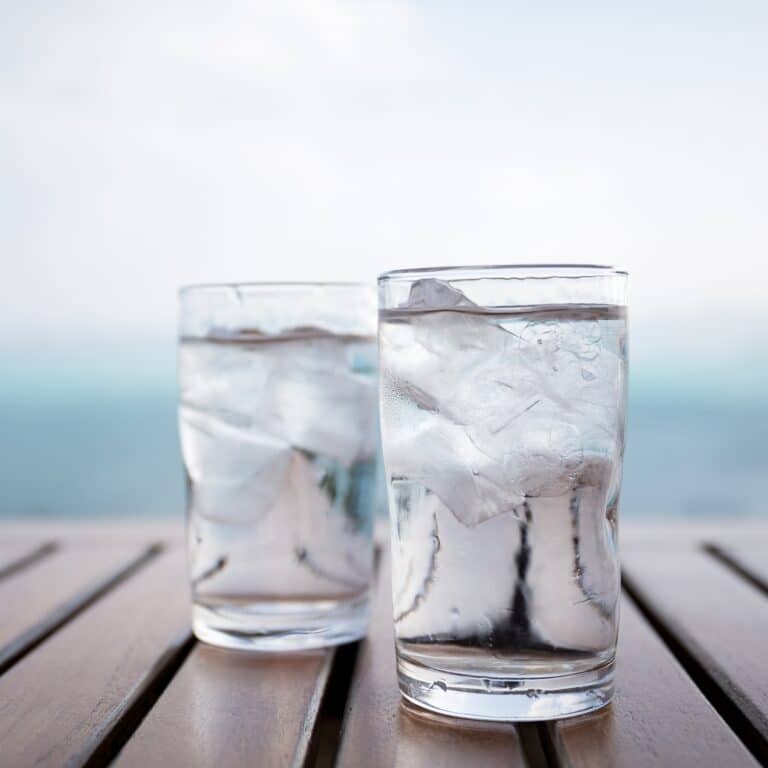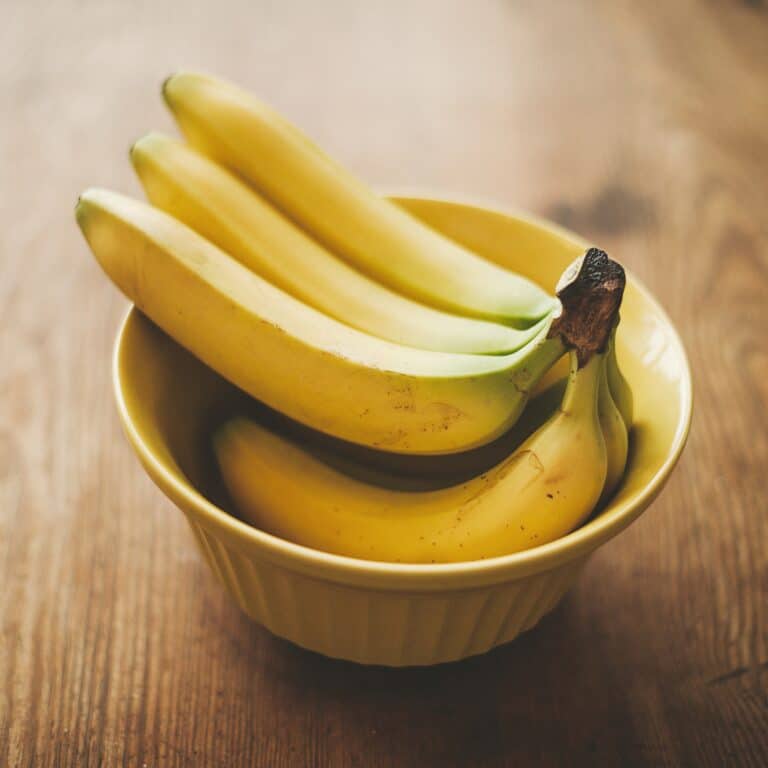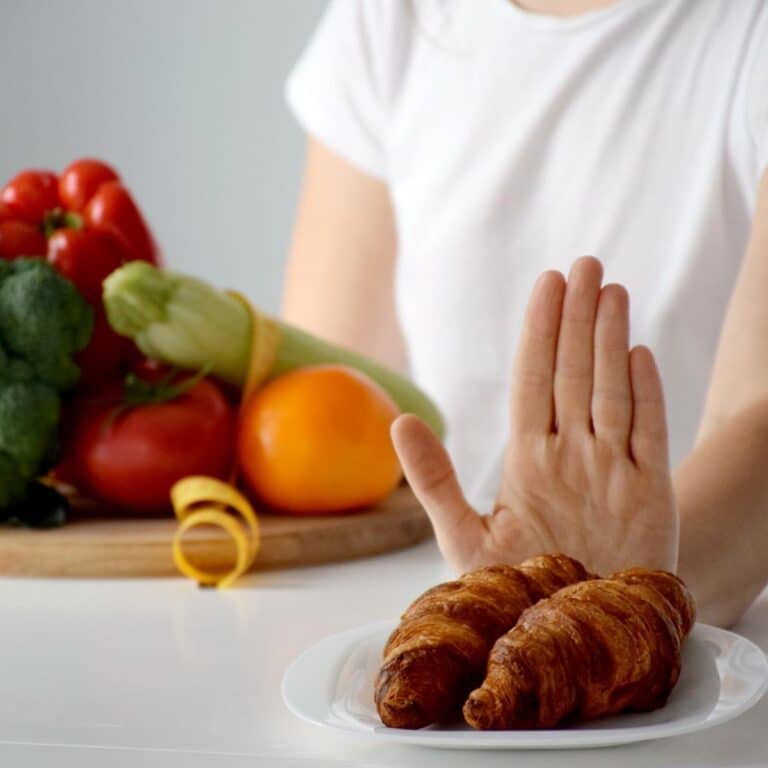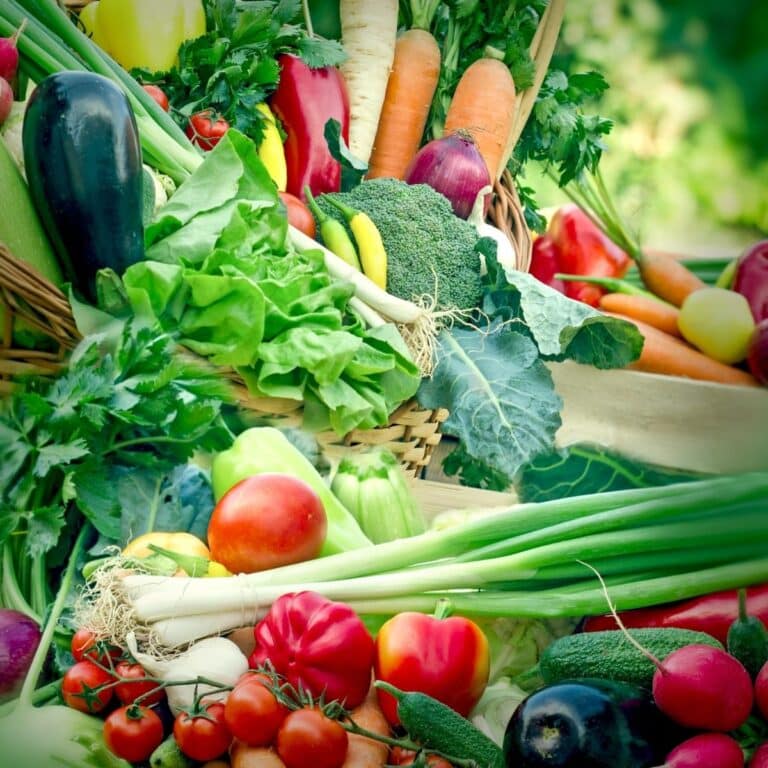Grocery Shopping with CKD
You've got Chronic Kidney Disease (CKD), but that doesn't mean you can't enjoy good food. It's about making smart choices.
This guide will help you navigate the grocery store aisles with confidence, understanding food labels, and choosing kidney-friendly foods.
So, put on your shopping shoes, we're going to make this journey together!
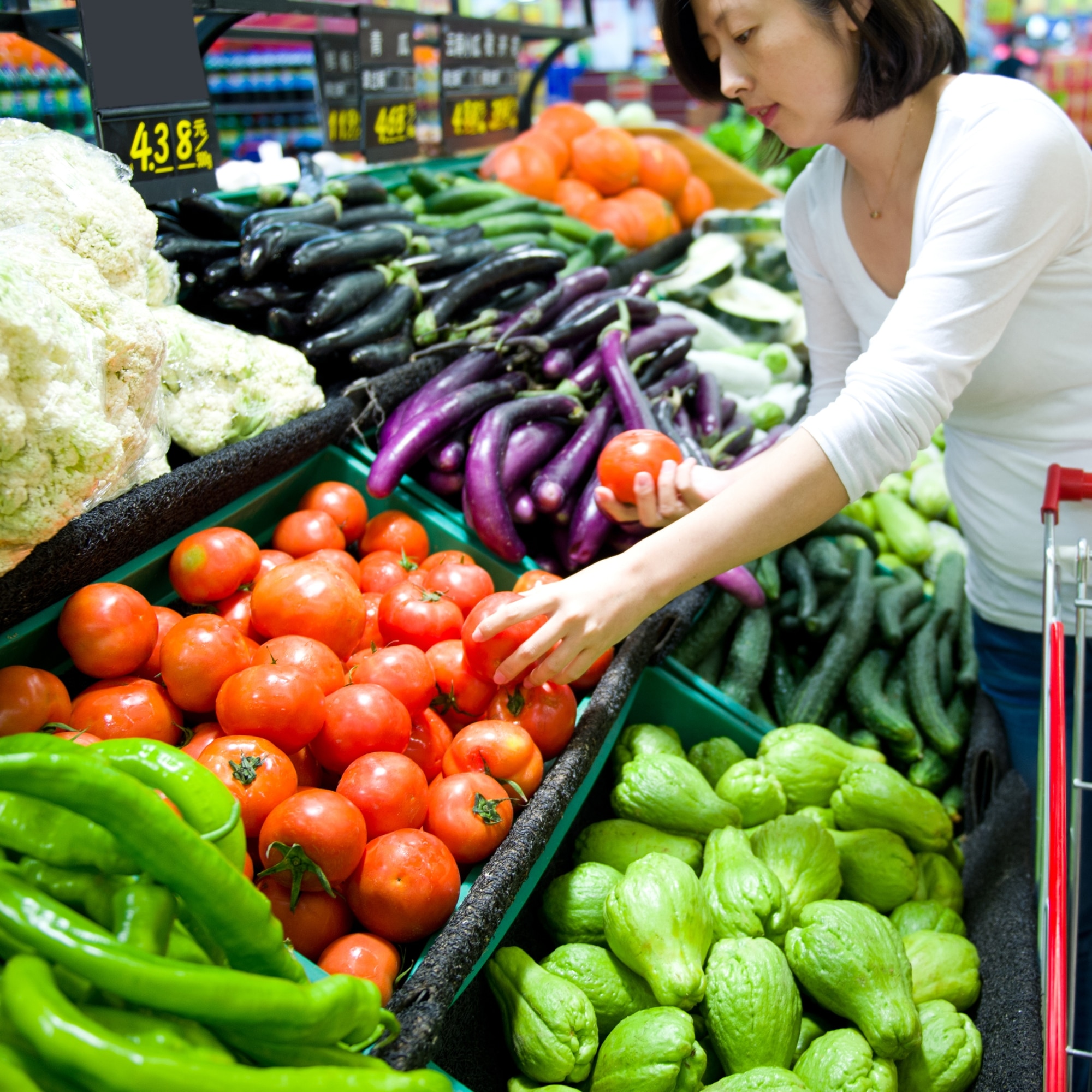
Jump to:
- Key Takeaways
- Understanding Your CKD Dietary Needs
- Pre-Store Preparation Tips
- Successful Grocery Shopping Strategies
- The Crucial Role of Fresh Foods
- Decoding Food Labels for CKD Patients
- Life Before Dialysis: Dietary Requirements
- Eating Well: Tips for Pre-Dialysis Patients
- FAQs for Grocery Shopping with CKD
Key Takeaways
- Understanding and interpreting nutritional labels correctly is crucial for individuals with CKD when grocery shopping.
- CKD patients should pay attention to sodium content and be cautious of sugar substitutes when making food choices.
- Identifying high-phosphorus foods is important for managing CKD, and individuals should be mindful of hidden sources of phosphorus in protein-rich foods and processed goods.
- CKD patients should prioritize kidney-friendly snacks, practice portion control, and consult healthcare professionals before taking supplements.
For More Recipes and Ideas --->> Get Your Free Meals and Recipes That Are Perfect for Pre-Dialysis Diets, Pre-Dialysis with Diabetes, or Dialysis Diets.
Understanding Your CKD Dietary Needs
When managing your diet with Chronic Kidney Disease (CKD), it's essential to understand how to interpret nutritional labels correctly, and this discussion will guide you through that process.
But it's not just about restrictions, you also have choices to balance for a healthier lifestyle.
We'll delve into the details of what to look for, how to make informed decisions, and ways to ensure your choices align with your dietary needs.
Interpreting Nutritional Labels
You've got to understand how to interpret nutritional labels to make the best choices for your CKD diet. Label misunderstandings can lead you astray, causing you to consume more sodium than necessary or fall victim to hidden additives that could harm your kidneys.
It's crucial not just to look at nutrient percentages, but also consider the actual amounts of nutrients in each serving. Pay close attention to sodium content, keeping it low is key for managing your condition.
Also, watch out for sugar substitutes which might seem healthier but can still affect your blood sugar levels and overall health negatively.
Balancing Restrictions and Choices
Balancing restrictions and choices in your diet isn't easy, but it's critical for maintaining optimal health. Prioritize kidney-friendly snacks like apples or carrots that are low in sodium, potassium, and phosphorus.
Portion control tips can help too, remember, even healthy foods can be harmful when consumed excessively.
Stay hydrated, but keep your hydration habits in check, too much water might overwork the kidneys. Consider supplements cautiously as some may harm kidney function. Always consult healthcare professionals before adding any to your regimen.
Lastly, embrace seasonal produce benefits, they're typically fresher and packed with nutrients. Load up on leafy greens in spring or root veggies in winter to boost both flavors and nutritional value of your meals, while caring for those you serve.
Pre-Store Preparation Tips
You're about to discover the essential world of pre-store preparation, a key step in managing your health through diet.
We'll provide you with comprehensive meal planning guidance, showing you how to strategically plan your meals for optimum nutrition and health.
We'll guide you in creating detailed ingredient lists that not only help streamline your shopping process, but also ensure you're buying exactly what's needed for each kidney-friendly meal.

Meal Planning Guidance
Planning your meals ahead of time can be a game-changer, when you're living with chronic kidney disease. It's important to focus on kidney friendly recipes, which means being mindful of portion control and incorporating low sodium tactics into your meal preparation.
- Portion Control: Don't just eat until you're full, know the right amounts for each type of food.
- Low Sodium Tactics: Learn how to season without salt and read labels diligently.
- Home Cooking Benefits: You can ensure quality ingredients, control additives, and savor the joy in preparing your own meals.
- Vegetable Variety Importance: Embrace diverse veggies for their different nutrients that help keep kidneys healthy.
Creating Ingredient Lists
Creating a list of ingredients for your meals isn't just about convenience, it's also a vital part of managing your diet and health. Consider spice alternatives as they can add flavor without impacting kidney function. Allergen considerations are crucial too, especially if you're catering to various dietary needs.
Seasonal shopping not only supports local farmers, but it also provides fresh produce packed with nutrients essential for your health. You might also want to consider greenhouse groceries for year-round access to certain fruits and vegetables.
Budgeting tips come in handy when managing expenses. Planning ahead and buying in bulk can save money in the long run. Remember, your health is an investment, and prioritizing it will never be a regrettable decision!
Successful Grocery Shopping Strategies
You're about to dive into the world of successful grocery shopping strategies, where understanding food labels and limiting processed foods play a pivotal role in maintaining your health.
Decoding food labels isn't as daunting as it seems, once you know what to look for, they can be your roadmap to healthier choices.
Decoding Food Labels: Kidney-Friendly Food List
It's essential to understand how to decode food labels when managing your chronic kidney disease (CKD). The world of label literacy can be complex, filled with nutritional jargon and hidden additives that can impact your health.
So, here are four steps to guide you:
- Decode Nutritional Jargon: Don't let confusing terms on labels throw you off. Understand what each term means for your health.
- Spot Hidden Additives: Keep a lookout for substances like phosphorus or potassium which might harm your kidneys.
- Check Sodium Content: High sodium intake can worsen CKD conditions, so always check the percentage of daily value (%DV).
- Organic vs Conventional: Choose organically grown products when possible as they contain fewer harmful chemicals.
Limiting Processed Foods
Limiting processed foods in your diet isn't just about weight control; it's also a crucial step towards better kidney health. These foods often contain high levels of sodium, which can strain your kidneys. You'll also need to maintain potassium awareness as excessive intake may lead to complications for those with kidney problems.
| Nutrient | Processed Foods | Healthier Alternatives |
|---|---|---|
| Sodium | High | Low |
| Potassium | Can be high | Controlled |
| Phosphate | Often added | Naturally occurring |
For phosphate control and fluid management, opt for fresh fruits and vegetables that are rich in dietary fiber. They not only help regulate your body's fluids but also assist in removing waste from your blood.
Remember, you're not just serving yourself when making these dietary changes, but also contributing to a healthier community by promoting mindful eating habits.
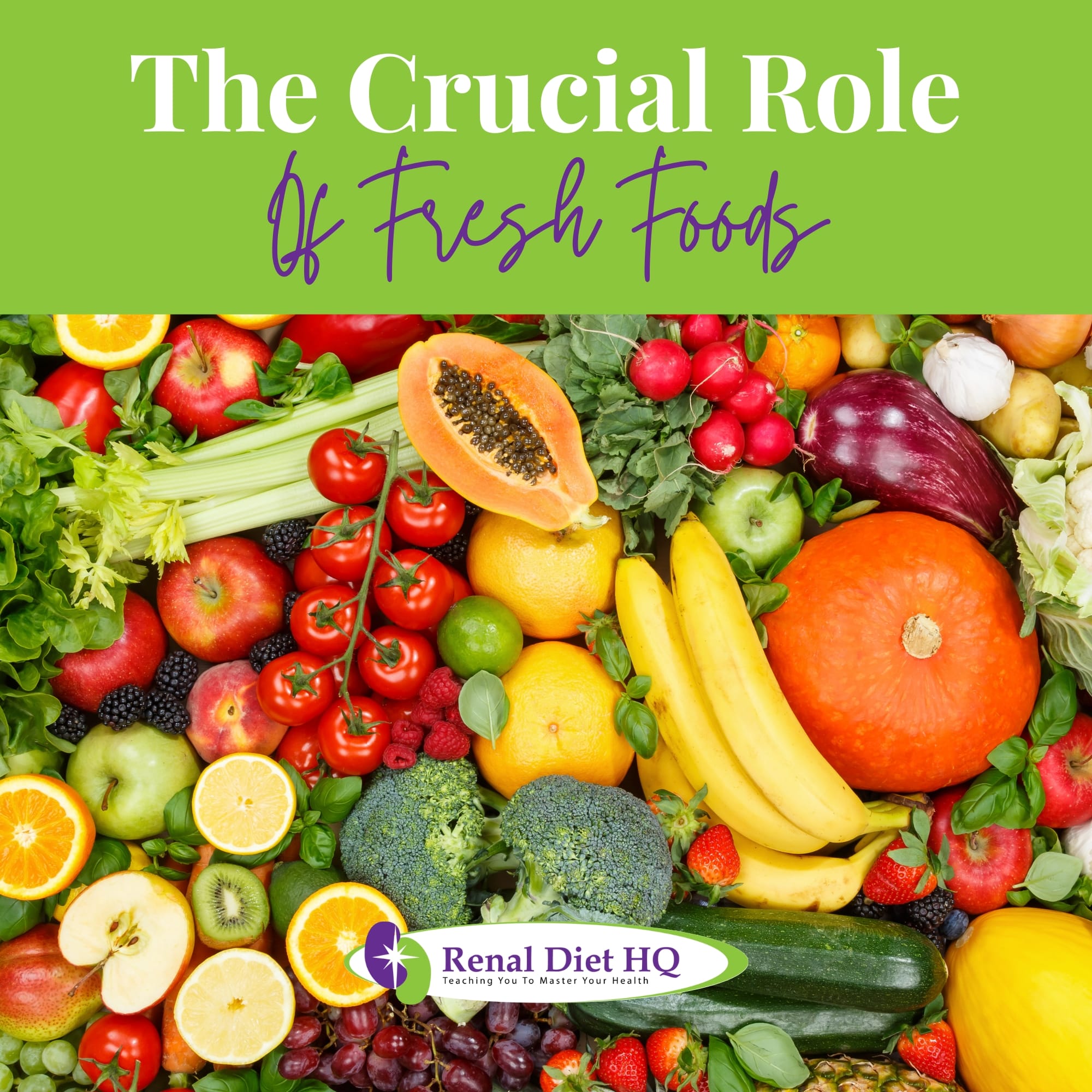
The Crucial Role of Fresh Foods
You've heard it before, but let's look into why fresh foods are so vital to your health and wellbeing. Eating fresh isn't just about vibrant flavors and textures. It's about packing your meals with essential nutrients that processed foods simply can't match.
Let's explore the compelling benefits of fresh foods. By avoiding processed ones, you positively impact your health, energy levels, and overall vitality.
Benefits of Fresh Foods
Fresh foods are key to a healthy diet; they're packed with essential nutrients that can benefit individuals with CKD. Embrace fresh cooking methods using seasonal produce. The organic benefits are immense, and your body will thank you for it.
- Seasonal Produce: They're fresher, tastier, and retain more nutrients than non-seasonal counterparts.
- Organic Benefits: Organic food is free from harmful pesticides and chemicals, promoting overall health.
- Locally Sourced Benefits: These foods have a shorter field-to-fork journey preserving their freshness; plus you'll be supporting local growers.
- Kitchen Hygiene: Proper hygiene prevents cross-contamination of bacteria, ensuring food safety.
Avoiding Processed Foods
It's crucial to steer clear of processed foods as they're often high in sodium and unhealthy fats. These sodium pitfalls can be harmful, especially if you're dealing with Chronic Kidney Disease (CKD).
Instead, try filling your cart with CKD friendly snacks like fresh fruits and vegetables. The organic benefits are countless, they're nutrient-rich, lower in sodium, and free from harmful preservatives.
Hydration importance also cannot be overstated, drinking plenty of water helps flush out toxins.
When shopping, remember that seasonal produce is more likely to be fresh and packed with nutrients. So make seasonal shopping a habit, it's not just good for you, but also supports local farmers.
Paying attention to what you buy can have profound effects on your health.
Decoding Food Labels for CKD Patients
As you navigate your journey with chronic kidney disease (CKD), understanding nutrition facts becomes a crucial part of managing your diet. It's not just about knowing what to eat, but also being able to identify high-phosphorus foods that could potentially harm your kidneys.
We're here to help you decode food labels, so you can make informed decisions for a healthier lifestyle and better control over CKD.
Understanding Nutrition Facts
You've got to really scrutinize those nutrition labels when shopping for groceries, since they'll help manage your CKD better. Nutrition education is crucial in this journey. Don't let facts confusion deter you from making healthier habits and dietary changes necessary to keep your disease under control.
Understanding macros can be a game-changer:
- Proteins: They are essential but limit intake as excess protein can burden your kidneys.
- Carbohydrates: Opt for complex carbs like whole grains for sustained energy.
- Fats: Choose healthy fats such as olive oil and avocados over saturated ones.
- Sodium, potassium, and phosphorus: Keep an eye on these, they're often high in processed foods which could exacerbate CKD.
Identifying High Phosphorus Foods
Now that you've got a handle on reading nutrition labels, it's time to delve deeper into identifying high phosphorus foods and phosphorus additives. Phosphorus food dangers are real, especially for those with kidney conditions.
You need to be aware of the phosphorus content variance in your diet. Phosphorus levels and phosphoric acid vary in foods.
You'll find hidden phosphorus sources not just in protein-rich foods like poultry and fish but also in processed goods and even beverages. Phosphorus is often added to prolong shelf life or enhance flavor, so, double-check those labels!
Life Before Dialysis: Dietary Requirements
You're about to delve into the world of pre-dialysis diet restrictions, a critical area for those living with kidney disease and a specific diet plan preparing for a shopping trip.
It's not just about what you can't eat, but also focusing on healthy food options that will support your kidney function and overall wellbeing.
In this discussion, we'll provide detailed insights on how to navigate these dietary changes while maintaining a nourishing and enjoyable eating routine.
Here are some other things to consider when it comes to dietary requirements:
- Renal diet grocery list
- Healthy kidney diet
- Kidney-friendly diet
- Plant-based diet
- CKD-Friendly plant-based diet
- Family-friendly kidney diet
- Balanced diet
Pre-dialysis Diet Restrictions
It's essential to be mindful of certain dietary restrictions when preparing for pre-dialysis with chronic kidney disease. You're not just feeding a body, you're providing care, love, and support through nutrient-rich foods.
As someone who values serving others, here are some tips to guide your grocery shopping:
- Phosphorus Control Techniques: Avoid foods high in phosphorus like dairy products, nuts, and seeds.
- Renal Friendly Snacks: Choose fruits low in potassium such as apples and berries.
- Hydration Management: Limit fluids to prevent overloading the kidneys.
- Low Sodium Alternatives & Potassium Counting Tips: Opt for fresh produce instead of canned items which often contain hidden sodium and potassium.
Remember, every meal prepared is an act of service towards maintaining health and happiness while battling CKD.
Healthy Food Options
Let's look into some healthy food options that are both delicious and kidney-friendly. Opt for kidney-friendly snacks like apples, berries, or bell peppers. This list of foods can help you make healthy food choices.
When it comes to vegetable preparation techniques, grilling or steaming can help preserve nutrients while reducing added salts.
Consider the debate of organic vs non-organic; organic foods often have fewer pesticides, but the key is choosing fresh and natural over processed.
Fluid intake considerations are also important, staying well-hydrated aids in toxin removal but remember not to overdo it, if you've been advised to limit fluids.
Seasonal food choices offer variety and ensure you're getting a broad range of nutrients.
As always, consult your healthcare provider for personalized advice on managing your CKD through diet.
Eating Well: Tips for Pre-Dialysis Patients
You've heard it before, but what you eat really does make a difference in your overall health.
We're going to explore the benefits of anti-inflammatory foods and how incorporating them into your diet can boost your immune system, reduce inflammation, and help you feel better overall.
Also, we'll check into healthy lunch options that are not only tasty but also easy to prepare, ensuring that good health is always on your menu. Let's get your shopping list ready for people with kidney disease.
Anti-Inflammatory Foods Benefits
Incorporating anti-inflammatory foods into your diet can benefit your overall health by reducing inflammation and helping manage CKD symptoms. These foods play a critical role in inflammation reduction, curbing the damage caused by chronic kidney disease (CKD).
- Antioxidant Importance: Foods rich in antioxidants like berries, cherries, and spinach protect your cells from damage.
- Omega 3's Role: Omega-3 fatty acids found in fatty fish, walnuts, and flaxseeds help reduce inflammation.
- Spice Benefits: Spices like turmeric and ginger are not only flavorful, but also boast strong anti-inflammatory properties.
- Green Tea Advantages: Green tea is packed with antioxidants that combat inflammation.
Some anti-inflammatory foods include frozen fruit, bean sprouts, green beans, white bread, wheat pasta, cottage cheese, cranberry juice, lime juice, and so many other options. Make sure you read all nutrition facts labels.
Healthy Lunch Options
Switching to healthier lunch options can make a significant difference in managing inflammation and promoting overall well-being. Consider kidney-friendly snacks, like bell pepper strips or apple slices, they're low in sodium and potassium.
Vegetarian options are also an excellent choice; they offer essential nutrients without overloading your kidneys. A salad with dark leafy greens, topped with kidney-friendly veggies is a fantastic option.
If you're not vegetarian, don't overlook the value of seafood in CKD management. Omega-3 rich fish like salmon can help reduce inflammation.
Remember the importance of hydration, too. Drinking plenty of water aids kidney function and helps flush out toxins. Enjoying CKD-friendly foods is a good thing when you are trying to find healthy lunch options, no matter the stage of kidney disease.
When it comes to meal prepping and balanced meals, choosing a healthy lunch options and healthy meal plans is super important. Just make sure you have the right sources of protein.
FAQs for Grocery Shopping with CKD
While there aren't specific kidney-friendly supermarkets, many stores offer specialized grocery services for health needs. Online shopping benefits you by providing filters to find CKD focused food brands. It's also easier for comparison shopping and grocery budgeting.
Local health food stores often carry kidney-friendly options too. Always remember to read labels carefully, as even 'healthy' foods can contain high levels of sodium or phosphorus, which aren't good for your kidneys.
Managing cravings for unsuitable foods can be challenging. However, with craving control strategies, you can resist unhealthy temptations.
Try CKD-friendly substitutions when a craving hits. Emotional eating often fuels these cravings, so it's important to understand what triggers them.
Mindful snacking, focusing on the taste and texture of your food rather than mindlessly munching, can also help manage these desires. Try and steer clear of sodium foods that are a high-sodium food. Canned foods can be one of them! You can also avoid food waste by following a renal diet grocery list.
It's not easy, but remember, your health is worth it! Keep in mind that lean protein can also become one of your favorite meals.
Absolutely, you can use mobile apps for managing your diet and grocery shopping. App integration allows easy tracking of nutritional information.
Digital reminders help keep your eating habits in check. Nutritional tracking ensures you meet the dietary requirements for your condition.
Personalized shopping helps select suitable groceries while avoiding problematic foods. Diet management keeps food cravings at bay by suggesting healthier alternatives.
These tools can greatly assist in maintaining a healthy lifestyle with minimal effort on your part.
Importance of Having Tips for Grocery Shopping with CKD
So, you've got all the tools to handle grocery shopping with CKD. Remember, fresh is best and understanding food labels is key.
Stay organized, plan ahead, and stick to your dietary needs. Before dialysis, making these smart choices can make a world of difference in managing your health.
You're not just eating, you're fueling your body for the fight against kidney disease.


